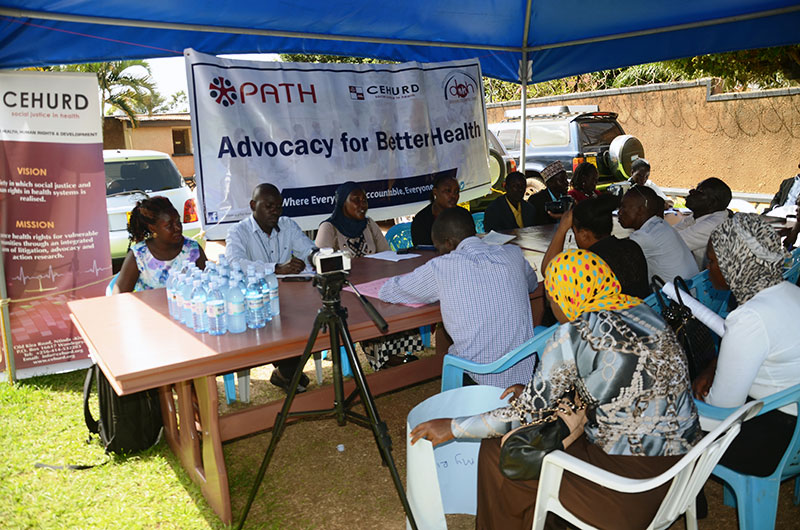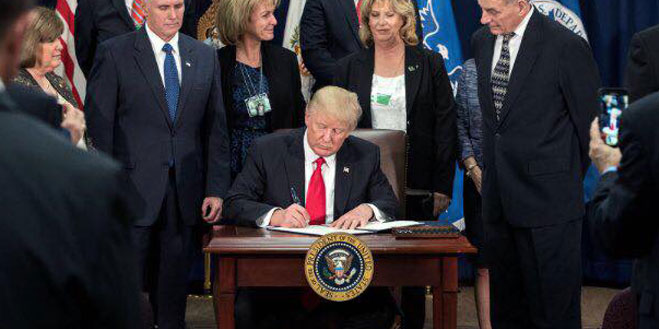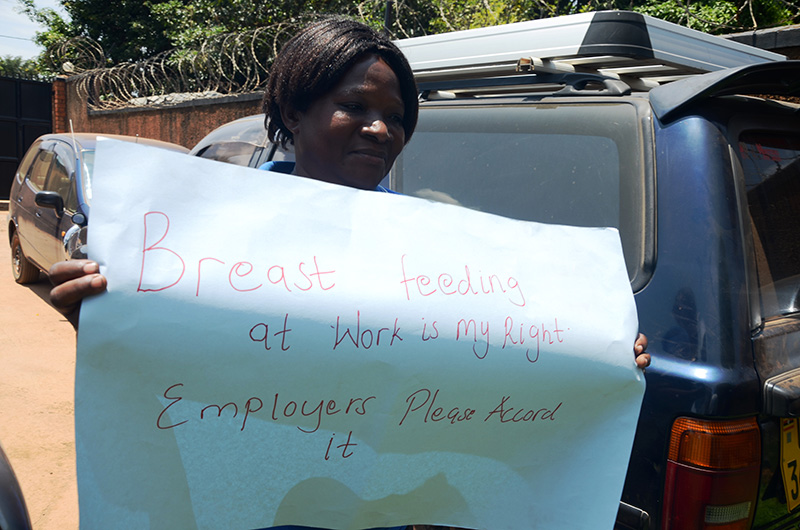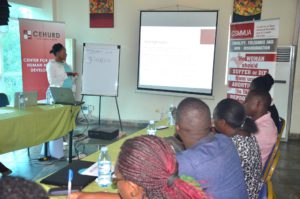Improving maternal health is key to empowering women in the changing world of work
Kampala – Uganda. Today, Center for Health, Human Rights and Development (CEHURD) and other Civil Society Organisations through the advocacy for better health program joined hands on the eve of the International Women’s day 2017 to emphasize the importance improving maternal health in empowering women in the changing world of work. As we celebrate our women, we express our disappointment for the lives of 16 women that are lost every day in Uganda while giving birth. This tragedy greatly undermines the efforts of women in the changing world of work.
Uganda like other countries globally made a commitment to take steps towards the reduction of the global maternal mortality ratio to less than 70 per 100,000 live births by 2030 and end preventable deaths of mothers while giving birth. Despite the commitment, Uganda still registers a high maternal mortality ratio, which is at 360 deaths per 100,000 births – (MoH, Annual Health Sector Performance Report 2014/15). It is critical to note that these deaths are largely avoidable.
Download full Press Release Here:
Press Release: International Women's Day 2017 (2592 downloads )

Its not that the causes of these deaths are unknown, these have become a daily song and yet that same causes continue to taken the lives of the mothers of Uganda’s economy. With political commitment, our government can ably deal with the massive shortage of trained, motivated and equitably deployed professional health workers to attend to births, limited access to emergency obstetric care, limited access to quality antenatal care, and limited access to family planning services, haemorrhage and sepsis. The current budget cuts to the health sector and non-prioritization of maternal health greatly affects women’s competitiveness in the changing world of work in various ways.
“We cannot continue to see the injustices of women dying from preventable maternal deaths. We call upon the government to recruit, allocate and motivate health workers as well as supply necessary basic maternal health commodities in the health facilities as part of their Human rights obligations” said Joy Asasira, a Program Manager at CEHURD.
In the wake of the recent foreign policies that propose to cut funding to certain critical SRHR services and commodities and this combined, with the proposed budget cuts of over 500 billion Uganda shillings to the health sector.
We the Civil Society gather here today condemning the retrogressive measures that are being taken and will have a devastating effect on the health of our women.
We therefore call for;
- Government to prioritize the availability, accessibility and ensure good quality of the 13 life saving commodities (four of which are critical for the improvement of the maternal health outcomes).
- Government should scale up efforts in providing trainings of midwives on the 13 life saving commodities including curriculum review where necessary.
- Government needs to recruit, retain and remunerate mid wives in Uganda.
- Concerted political will, action and investment in resourcing the underlying determinants of health.
For more information contact info@cehurd.org, or call +256 – 414 532283, or Nsereko Ibrahim on nsereko@cehurd.org or telephone +256-702245536
 CEHURD is looking for a National Consultant for HIV and Law, with a strong interest and passion for the Organization’s mission. The consultant will work under the direct supervision of the Executive Director of CEHURD. This National Consultant will perform different duties and produces as well as expect to avail a couple of deliverables during a given period of time. Please read the full Terms of Reference and send in your application before the deadline. Find the FULL TORs Here.
CEHURD is looking for a National Consultant for HIV and Law, with a strong interest and passion for the Organization’s mission. The consultant will work under the direct supervision of the Executive Director of CEHURD. This National Consultant will perform different duties and produces as well as expect to avail a couple of deliverables during a given period of time. Please read the full Terms of Reference and send in your application before the deadline. Find the FULL TORs Here.





